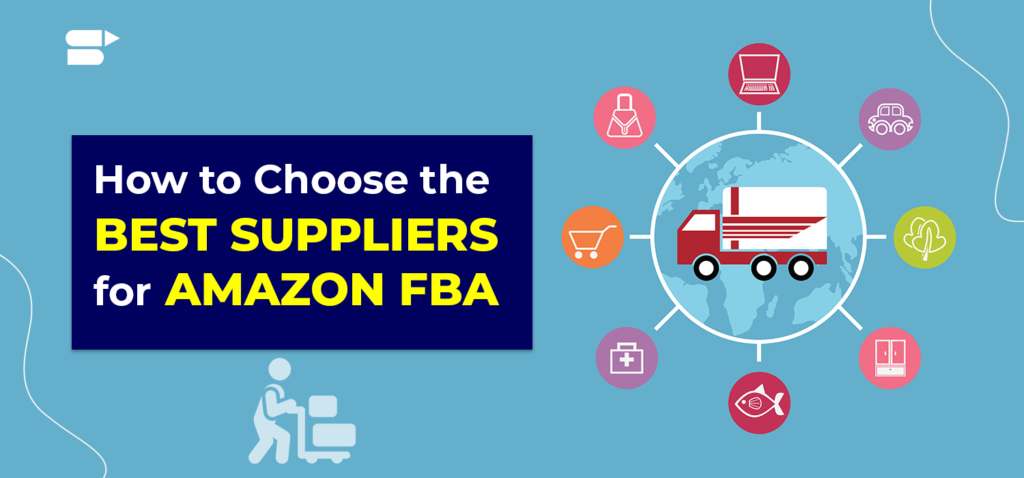
Introduction
In the dynamic world of e-commerce, Amazon FBA (Fulfillment by Amazon) has emerged as a lucrative avenue for entrepreneurs and businesses alike. As we step into 2025, the competition intensifies, making it imperative for sellers to source products from reliable wholesale suppliers. This article delves into the top wholesale suppliers for Amazon FBA in 2025, offering insights into their offerings and how they can bolster your business.
The 7-Figure Wholesale Formula for Amazon Sellers
Achieving a seven-figure revenue on Amazon isn’t merely about listing products; it’s about strategic sourcing, understanding market trends, and building robust supplier relationships. The foundation of this success lies in partnering with wholesale suppliers who offer quality products, competitive pricing, and reliable fulfillment services.
Top Wholesale Suppliers for Amazon FBA in 2025
1. Alibaba
- Overview: A global B2B marketplace connecting sellers with manufacturers and wholesalers, primarily from Asia.
- Why Choose Alibaba:
- Vast product categories.
- Competitive pricing.
- Customization options for private labeling.
- Considerations:
- Longer shipping times.
- Due diligence required to vet suppliers.
2. SaleHoo
- Overview: A directory of verified suppliers and a community for online sellers.
- Why Choose SaleHoo:
- Access to over 8,000 trusted suppliers.
- Market research tools.
- Educational resources for sellers.
- Considerations:
- Annual membership fee.
3. Worldwide Brands
- Overview: A comprehensive directory of certified wholesalers and drop shippers.
- Why Choose Worldwide Brands:
- Lifetime access with a one-time fee.
- Over 16 million products listed.
- Regularly updated supplier listings.
- Considerations:
- Initial investment cost.
4. Doba
- Overview: A platform that integrates with various e-commerce platforms, offering drop shipping services.
- Why Choose Doba:
- Simplified product sourcing.
- Inventory management tools.
- Integration with Amazon and other platforms.
- Considerations:
- Monthly subscription fees.
5. Wholesale2B
- Overview: Provides access to millions of products from multiple suppliers.
- Why Choose Wholesale2B:
- Automated order processing.
- Product data feeds.
- Integration with Amazon FBA.
- Considerations:
- Subscription-based pricing.
6. DHGate
- Overview: A Chinese B2B e-commerce platform facilitating the sale of manufactured products from suppliers to small and medium retailers.
- Why Choose DHGate:
- Wide range of products.
- Competitive pricing.
- Buyer protection policies.
- Considerations:
- Quality control varies among suppliers.
7. Kole Imports
- Overview: One of the USA’s largest direct importers of general merchandise.
- Why Choose Kole Imports:
- Extensive product categories.
- Low minimum order quantities.
- Fast shipping within the USA.
- Considerations:
- Limited customization options.
8. DollarDays
- Overview: A wholesale distributor offering bulk goods at discounted prices.
- Why Choose DollarDays:
- Ideal for non-profit organizations and small businesses.
- No membership fees.
- Diverse product range.
- Considerations:
- Some products may have higher minimum order quantities.
9. LightInTheBox
- Overview: A global online retail company that delivers products directly to consumers around the world.
- Why Choose LightInTheBox:
- Competitive pricing.
- Global shipping.
- Regular promotions and discounts.
- Considerations:
- Longer delivery times for certain regions.
10. Inventory Source
- Overview: Provides automation tools for inventory management and order fulfillment.
- Why Choose Inventory Source:
- Automated product uploads.
- Real-time inventory syncing.
- Integration with Amazon and other platforms.
- Considerations:
- Monthly subscription fees.
Winning with Wholesale: How to Outsell Your Competitors on Amazon
To gain a competitive edge:
- Product Differentiation: Offer unique products or bundles.
- Competitive Pricing: Leverage supplier discounts to offer better prices.
- Customer Service: Ensure prompt responses and hassle-free returns.
- Marketing Strategies: Utilize Amazon PPC and SEO to increase visibility.
Amazon FBA Domination: Bulk Buying Strategies for Explosive Growth
Bulk purchasing can lead to:
- Cost Savings: Lower per-unit costs.
- Inventory Readiness: Always have products in stock.
- Supplier Relationships: Stronger ties can lead to better terms.
However, it’s essential to:
- Analyze Demand: Ensure the product has consistent sales.
- Storage Considerations: Factor in Amazon’s storage fees.
- Cash Flow Management: Ensure sufficient capital for bulk purchases.
Smart Inventory, Bigger Profits: Mastering Wholesale Distribution
Effective inventory management involves:
- Demand Forecasting: Use tools to predict sales trends.
- Regular Audits: Monitor stock levels to prevent overstocking or stockouts.
- Supplier Communication: Maintain open lines for restocking schedules.
Conclusion
Navigating the Amazon FBA landscape in 2025 requires strategic sourcing and efficient operations. By partnering with reputable wholesale suppliers and implementing best practices in inventory and customer management, sellers can position themselves for sustained success.
